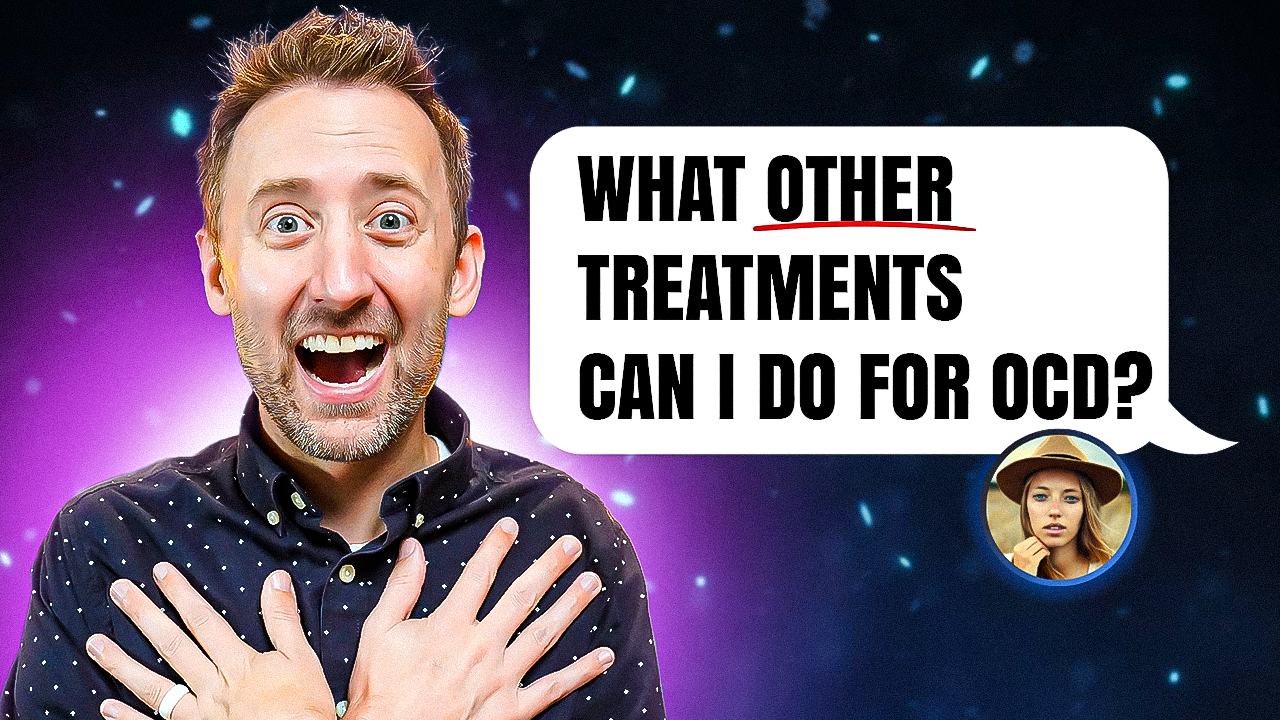What therapy should I do for OCD?
May 13, 2025
Unlocking Answers to OCD: Alternative Therapies, Guilt, and Managing Daily Life
Unlocking Answers to OCD: Alternative Therapies, Guilt, and Managing Daily Life
Are There Any Alternative Therapies That Can Complement Traditional Treatment for OCD?
While traditional treatments like Cognitive Behavioral Therapy (CBT) and Exposure and Response Prevention (ERP) remain the gold standard for OCD, alternative therapies can complement these approaches. Mindfulness meditation helps individuals manage anxiety by fostering a non-judgmental awareness of their thoughts. Yoga and other forms of exercise can reduce stress and improve mood. Some find benefit in acupuncture or art therapy as additional tools for emotional regulation. However, these should always be paired with evidence-based treatments for optimal results.
Can OCD Cause Depression?
Yes, OCD and depression often go hand-in-hand. The persistent distress caused by intrusive thoughts and compulsive behaviors can lead to feelings of hopelessness and sadness. Over time, the emotional toll of OCD may contribute to the development of depressive symptoms. Recognizing this connection is crucial, as addressing both OCD and depression can lead to more effective treatment outcomes.
What Are the Differences Between OCD and Hoarding Disorder?
While OCD and hoarding disorder share some overlapping features, they are distinct conditions. OCD is characterized by intrusive thoughts and compulsions, often unrelated to physical possessions. Hoarding disorder, on the other hand, centers around a persistent difficulty discarding items, regardless of their value, due to perceived need or fear of loss. Treatment approaches differ, with ERP being central for OCD and Cognitive Behavioral Therapy tailored to hoarding for hoarding disorder.
How Do I Deal with the Guilt Associated with Intrusive Thoughts?
Guilt is a common reaction to intrusive thoughts, but it’s important to remember that these thoughts do not define you. They are a symptom of OCD, not a reflection of your character. Practicing self-compassion and working with a therapist skilled in ERP can help. Exposure exercises that involve confronting and accepting these thoughts without performing compulsions can reduce their power over time.
Can Childhood Trauma Contribute to the Development of OCD?
Research suggests that childhood trauma may increase vulnerability to OCD. Traumatic experiences can amplify feelings of anxiety and lead to the development of coping mechanisms like compulsions. Understanding the role of trauma in OCD can inform treatment, often incorporating trauma-focused therapy alongside traditional OCD interventions to address underlying issues.
How Can I Prevent My OCD from Interfering with Daily Activities?
To prevent OCD from disrupting daily life, consistency in treatment is key. Create structured routines, set boundaries for compulsions, and prioritize ERP exercises. Break tasks into smaller, manageable steps to reduce overwhelm. Practice self-care, including adequate sleep and nutrition, to build resilience against OCD’s impact. Seek support from loved ones or support groups when needed.
Is It Common for OCD Symptoms to Fluctuate in Intensity?
Yes, OCD symptoms often fluctuate in intensity. Stress, life changes, and fatigue can trigger periods of heightened symptoms. Recognizing this ebb and flow can be empowering, as it highlights the importance of maintaining treatment even during calmer times. Ongoing therapy and mindfulness can help manage these fluctuations effectively.
Can OCD Be Triggered by Hormonal Changes?
Hormonal changes, such as those during puberty, pregnancy, or menopause, can exacerbate OCD symptoms. The connection between hormones and OCD is not fully understood, but it’s clear that shifts in hormone levels can influence mood and anxiety. If hormonal changes are affecting your OCD, discussing options with a healthcare provider, such as adjusting medication or therapy, can be beneficial.















